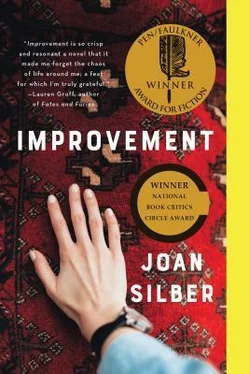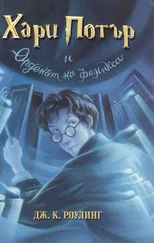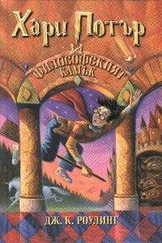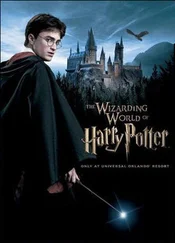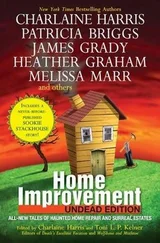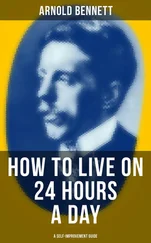Amanda got great enjoyment out of teasing Darisse about Silas. Even in her vanishing voice, she liked to kid about how those medical guys knew where all the parts were. Darisse had her act totally ignorant of anything when Silas came for his visit (he always worried about trouble if the agency knew). And after Silas left, they cracked up together, with Amanda choking merrily over every innocent thing Silas said.
But once Darisse and Silas had to work more closely over Amanda, they all stopped pretending anything. They lifted her together to change the bed, they mopped her and let her spit. She looked horrified and embarrassed and said, “Isn’t this. Romantic?”
Silas had to keep traveling between patients, which Darisse didn’t envy. On the nights when the two of them were really, really tired after work, they got into marathon TV watching. They streamed Nurse Jackie and the first season of Orange Is the New Black and watched episodes of the old Dave Chappelle show that Silas had on DVD. They were in a cocoon together, sprawled all over each other on the couch, eyes reflecting the same images.
Though they’d both grown up mostly in Richmond, they didn’t know any of the same people. Well, Silas was older. Now he’d met Frances, who came with Darisse the one time she saw Silas himself play music in a club. They both thought he was great—he had such a look of concentration, leaning over the keyboard—but he said he was off and seemed to think poorly of her for not knowing.
Silas’s friends—the men he played music with or had known forever—made sure to talk to her; they asked what singers she liked and laughed at her stories about Amanda’s unripe bananas. The wives made a show of admiring the way her hair was, how did she do that? She kept her mouth shut around them, so she didn’t sound stupid. Frances talked too much.
Jeshauna was a big fan of Silas. On weekends she slept on sofa pillows on the floor of his bedroom; she was a good sleeper. Darisse knew she must be prattling about this to Lionel’s mother and Lionel too, but they hadn’t said anything so far. Jeshauna called Silas “Syrah,” a name that might’ve just gone right by them.
Lionel would just make mean remarks if he knew, but his mother would want to be nosy about it. And what would Darisse say? She wouldn’t get huffy. Everybody liked nurses; she only had to say she had a nurse for a boyfriend. She’d be cool, because being cool was what was going to get Jeshauna back, once she had enough money for her own place.
She and Silas were getting along well, in bed and out, better than well, but it wasn’t going to last forever. This was Darisse’s own personal opinion, and not one she’d think of uttering to anyone except maybe Frances. What she said to Frances was, “I don’t think we’re what you’d call well matched.”
“You fighting?” Frances said.
“No, ma’am.”
“You’re not fighting, you’re matched fine.”
On Labor Day weekend, Silas drove off to North Carolina to see his kids, but he promised a fun outing the following weekend, all day in the park, their own special holiday. Jeshauna was so excited about this event she insisted on bringing the little toy piano Claude had given her. It wasn’t really a whole piano, just a blue plastic keyboard—maybe Silas would hate the clatter of it. But when Darisse set it up on a rock a little ways from the barbecue grounds, he said, “Well, look at this.”
It could sound like a drum or a horn and make animal noises too. He had to listen to a barking serenade, Jeshauna’s favorite. “Where’d you get this?”
“I found it in the garbage. It’s amazing what people throw out.” She wasn’t going to mention Claude to him.
“Not garbage!” Jeshauna said.
Claude had known the right thing to buy without ever meeting Jeshauna.
Silas got it to play back what Jeshauna banged on it, which Darisse hadn’t even known it could do. “These are good,” Silas said. “They’re cheap as hell but they take a while to break.”
Darisse had a terrible urge to pull Jeshauna off the keyboard so she’d never break it.
“Sticking right out of a garbage can,” she said.
She could say whatever she wanted; it didn’t matter to anyone but her. A person could keep the best of certain private things to herself, so they didn’t fade, and she could lie flat-out, when she had to, out of loyalty to what once was. Nothing could get her to take back the lie; she was glad for what she held on to.
“Right in the trash,” she said.
It wasn’t his fault. No one said it was, not even the insurance companies. The Ford Taurus had tear-assed onto the highway and rammed into the side of his tractor-trailer. Teddy remembered the noise of the car’s arrival, the unbelievable cosmic smack of it collapsing itself into crumpled metal. The noise fell into an unreal silence in his skull, while he headed his truck to the breakdown lane. After he set out flares, he walked back, with traffic swarming on one side, to peer inside the wreck and see more blood than he knew people had in them, two horror shows of men in mangled poses. He yelled, “Hey! Hello! You okay?” and they didn’t answer. Twisted in the seat belts, two young black guys, not moving or making a sound. He stood on the edge of the road, calling 911, trying to sound sane.
He didn’t think he smelled gas but maybe he did, and that was when he started shaking. He got one of the car’s back doors open and he was trying to drag out the bleeding passenger—a boy in a Knicks cap, with a bent leg—when the state cops got there. He’d been afraid the whole time of fuel leaks catching fire—he would’ve run and left them if that had started to happen—and he backed away fast once he wasn’t alone.
Nobody thought it was his fault. The cops made Teddy fill out diagrams; they checked for skid marks; they wrote a ticket to the bleeding driver, before the ambulance even got there. Not his fault, but he knew what he knew. He’d been thinking of Sally at just that moment, a certain half-smile she had.
And it turned out nobody was rushing to pay for damages to the truck, which he actually owned. Word came soon that the driver of the Taurus who hit him was not named in the car’s insurance policy. This individual—a kid of twenty-four—couldn’t be sued either, since he never got out of the wrecked car alive. He had gone where no lawyers could reach him, beyond bills and penalties and human disputes, beyond all the papers Teddy had filled out, and he had nothing by way of an estate either. Teddy’s insurance company made a point of checking all this. And what about the car’s owner? Poor as dirt, not worth suing.
Teddy was fifty-seven and had busted his gut to buy this truck, which he was far from done paying for. Now—even the cops told him—he was supposed to hire a lawyer to collect from his own insurance company, not his idea of a good time.
His wife, Leah, said, when he called her, “It’s just a big mistake to think you ever get paid back what you deserve in this world. You’re not dead, that’s the main thing.”
Leah was right—he loved his wife—he’d seen guys spend their best years being pissed off and miserable and very fucking boring about it. So he put himself in debt again to get his rig fixed, to avoid losing more workdays. Which he certainly could not afford. Leah was only working half-time now; they had her daughter, April, finally in some kind of college, and no school after high school was free.
He’d had the truck for five years, and he told everyone he was eager to get back in the saddle, but this was very close to a lie. A large part of him wished he could get away with never driving again. Just when that insane car came at him from nowhere, his mind was on Sally, his ex-wife; he’d been on his way to visit her outside Washington, D.C. And she had such a way of looking at him when he was standing in her doorway, her old look. Could he pay attention to two things at once, why not? And the speediest reflexes couldn’t make sixteen tons of unloaded semi move faster than it did—that crappy car had come out nowhere, before any human being could hit any brake. What did he think he could’ve done? But he kept thinking it. Which was no good to anyone.
Читать дальше
